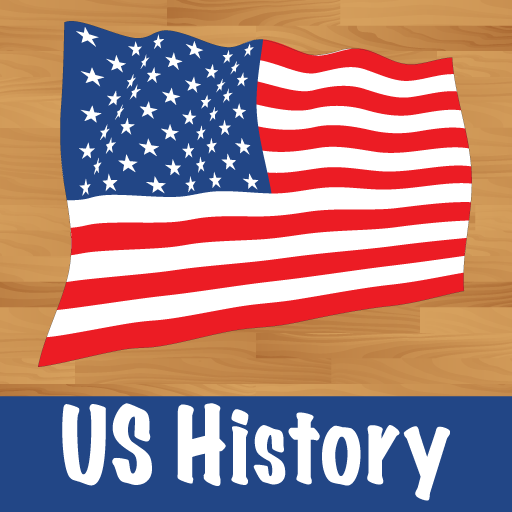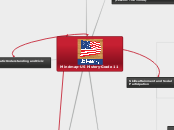
Mindmap-US History-Grade 11
United States History and Geography: Continuity and Change in the Twentieth Century-Grade 11 (Lesson: The 1920s)
Main topic
Democratic Understanding and Civic Values

National identity
11.1.3 Understand the history of the Constitution after 1787 with emphasis on federal versus state authority and growing democratization
11.1.2 Analyze the ideological origins of the American Revolution, the Founding Fathers philosophy of divinely bestowed unalienable natural rights, the debates on the drafting and ratification of the Constitution, and the addition of the Bill of Rights
11.1.1 Describe the Enlightenment and the rise of democratic ideas as the context in which the nation was founded

Constitutional Heritage
11.5.1 Discuss the policies of Presidents Warren Harding, Calvin Coolidge, and Herbert Hoover
11.5.3 Examine the psssage of the Eighteenth Amendment to the Constitution and the Volstead Act (Prohibition)
11.5.4 Analyze the passage of the Nineteenth Amendment and the changing role of women in society

Civic Values, Rights, and Responsibilities
11.5.2 Analyze the international and domestic events , interests , and philosophies that prompted attacks on civil liberties
11.5.2 Discuss the American Civil Liberties Union
11.5.2 Discuss the Ku Klux Klan

Knowledge and Cultural Understanding

Historical Literacy
11.5.1 Discuss the policies of Presidents Warren Harding, Calvin Coolidge, and Herbert Hoover.
11.5.2 Discuss..Marcus Garvey's "back-to-Africa" movement
11.5.3 Examine the passage of the Eighteenth Amendment to the Constitution and the Volstead Act

Ethical Literacy
11.5.2 Discuss immigration quotas
11.5.2 Discuss the Anti-Defamation League
11.5.2 Analyze the American Civil Liberties Union

Cultural Literacy
11.5.5 Describe the Harlem Renaissance
11.5.4 Analyze the changing role of women
11.5.6 Trace the growth of movies

Geographic Literacy
No relevant standard
Sociopolitical Literacy
11.5.1 Discuss the policies of President Herbert Hoover
11.5.2 Analyze the Ku Klux Klan
11.5.4 Examine the passage of the Nineteenth amendment

Economic Literacy
11.5.7 Discuss the rise of mass production
11.5.7 Discuss the growth of cities
11.5.7 Discuss the impact of new technologies
Skills attainment and Social Participation

Participation Skills
CCSS: ELA-Literacy. RH. 11-12.6 Evaluate authors' differing points of view on the same historical event or issue by assessing the authors' claims, reasoning, and evidence. HSS AS Civic competence requires the skills that make joint effort and effective cooperation possible.
CCSS: ELA-Literacy. RH. 11-12.1 Cite specific textual evidence to support analysis of primary and secondary sources, connecting insights gained from specific details to an understanding of the text as a whole. HSS AS Among the personal skills that students should develop are sensitivity to the needs, problems, and aspirations of others; expression of their personal convictions; recognition of personal biases and prejudices
CCSS: ELA-Literacy. WHST. 11-12.1a Introduce precise, knowledgeable claim(s), distinguish claim(s) from alternate or opposing claims, and create an organization that logically sequences the claim(s), counterclaims, reasons, and evidence. HSS AS Among the group interaction skills that students should develop are willingness to listen to the differing views of others; (and the)ability to participate in making decisions...

Critical Thinking Skills
CCSS: ELA-Literacy. WHST 11-12.1e. Provide a concluding statement or section that follows from or supports the argument presented.
CCSS. ELA-Literacy. RH. 11-12.5 Analyze in detail how a complex primary source is structured, including how key sentences, paragraphs, and larger portions of the text contribute to the whole. HSS AS: Democratic government depends on citizens who are actively involved as well as informed.
CCSS: ELA-Literacy. RH. 11-12.7 Integrate and evaluate multiple sources of information presented in diverse formats and media (e.g. visually, quantitatively, as well as in words) in order to address a question or solve a problem

Basic Study Skills
CCSS: ELA-Literacy. RH. 11-12.2 Determine the central ides or information of a primary or secondary source; provide an accurate summary that makes clear the relationships among the key details and ideas.
CCSS: ELA-Literacy. WHST.11-12.9 Draw evidence from informational texts to support analysis, reflection, and research.
CCSS: ELA-Literacy. WHST. 11-12.2 Write informative/explanatory texts, including the narration of historical events, scientific procedures/experiments, or technical processes.
